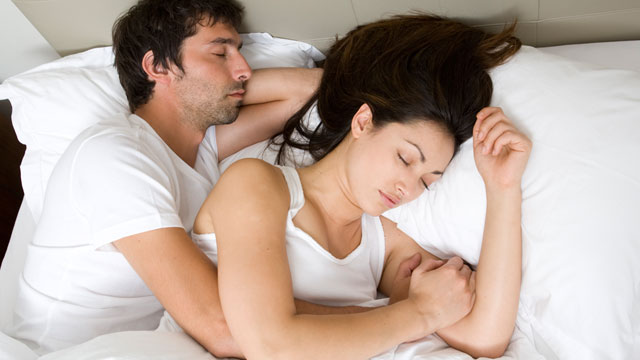When it comes to getting a good night’s sleep, women have one up on men with studies showing woman sleep longer and fall asleep faster.
About 30 percent of women said they sleep eight hours or more on weekdays, compared with 22 percent of men, according to the National Sleep Foundation’s 2005 Sleep in America Poll.
Woman also sleep longer with an average of seven hours, 43 minutes in a night — about 19 minutes longer than men, a study published in the journal Chronobiology International found.
It also found that woman take 9.3 minutes to fall asleep whereas men took around 23 minutes.
Research results also found that women deal with sleep deprivation better than men do, but when it comes to quality of sleep men are better off.
Professor of psychiatry and clinical and translational science at the University of Pittsburgh, Daniel Buysse, says some studies suggest that woman’s sleeping patterns may play a part in their life span and explain why woman live longer than men.
“Women on average have longer sleep than men; women on average are healthier than men. It could be that those are related,” he said.
Assistant professor at the University of Pittsburgh and leading researcher on relationships and sleep Wendy Troxel said sleep patterns are also affected by whether you share a bed or not, with research finding that we tend to wake more when we sleep with a partner, but feel more satisfied with sleep when a loved one is close by.
“There are objective costs to the physical presence of someone else in the bed,” Troxel said.
“[But] the safety and security we derive from our social relationships trumps the cost.”
Adults should be getting about eight hours sleep a night, however this should be guided by your own state of alertness.
However, there are differing body clocks between men and women. On average, men have a “circadian period” of 24 hours, 11 minutes. This is six minutes longer than women, according to a study presented at the American Academy of Sleep Medicine.
Although six minutes doesn’t seem like a great deal of time, researchers say losing this amount of sleep daily adds up.
Throughout the study more men had circadian periods longer than 24 hours and therefore were more likely to want to go to bed later and get up later each day.
On the other hand, twice as many women as men had body clocks shorter than 24 hours and therefore wanted to go to bed earlier and get up earlier.
Both sexes however, suffered when their circadian period was out of sync with the 24-hour clock, which resulted in sleep deprivation throughout the week.
Despite the research findings, researchers say woman tend to complain more about their sleep, saying they don’t get enough and find it difficult to fall asleep and stay asleep.
Dr. Buysee says more investigation may be needed, but something to bear in mind is that mothers with young children may have a very interrupted sleep.
“This isn’t going to be popular, but some studies show that mothers get more sleep than fathers,” he said.
“If the woman’s sleep is more fragmented, she’s going to suffer more consequences.”
However, the good news for women is that generally they have a more slow-wave sleep, which is the deepest sleep and tends to occur in the first part of the night.
This deep sleep is one of the reasons woman tend to be able to cope with sleep deprivation better than men.
Make an effort to go to bed earlier each night.
Try not to smoke or drink alcoholic or caffeinated beverages in the hours before bedtime.
Improve your sleeping environment by keeping it dark and sound-proof and turning off lights.
Take away any distractions in the bedroom such as TV or a computer.
Try relaxation techniques to help you fall asleep quickly.
Your say: Do you feel like you get enough sleep? Share your thoughts below.




